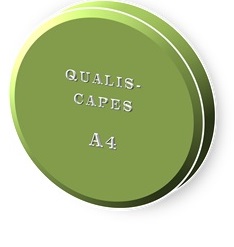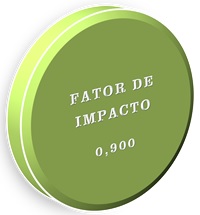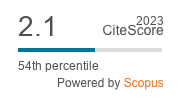COINOCULATION WITH Bradyrhizobium AND Trichoderma ALLEVIATES THE EFFECTS OF SALT STRESS IN COWPEA
DOI:
https://doi.org/10.1590/1983-21252019v32n206rcKeywords:
Salinity. Osmoprotectants. Plant growth-promoting fungi.Abstract
The deleterious effects of salt stress can be mitigated by the use of beneficial microorganisms. The aims of this study were to evaluate whether coinoculation with Bradyrhizobium and Trichoderma asperelloides alleviates salt stress in cowpea. The experiment was conducted in a greenhouse using pots filled with sterile soil. Seeds were sown and inoculated with Bradyrhizobium or coinoculated with Bradyrhizobium and T. asperelloides. At 15 days after sowing (DAS), the nitrogen-free nutritive solution was supplemented with 50 or 100 mmol L-1 sodium chloride (NaCl) to induce salinity. Uninoculated plants and irrigated with solution without NaCl were used as absolute control. At 35 DAS, plants were collected and nodules were excised for use in the determinations. The absolute controls did not show root nodules. Salt stress decreased plant biomass and growth, especially in cowpea inoculated with Bradyrhizobium. The stem diameter increased in cowpea coinoculated with Bradyrhizobium and T. asperelloides, mainly in plants subjected to salt stress at 100 mmol L-1 NaCl. Cowpea coinoculated with Bradyrhizobium and T. asperelloides maintained a higher content of free ammonia and organic compounds in its nodules even under salt stress. We concluded that the coinoculation of cowpea with Bradyrhizobium and T. asperelloides induces an increase in the concentration of organic solutes in the root nodules, especially when cowpeas are cultivated under salinity. Therefore, the use of coinoculation with Bradyrhizobium and T. asperelloides alleviates the negative effects of salt stress in cowpea.
Downloads
Downloads
Published
Issue
Section
License
Os Autores que publicam na Revista Caatinga concordam com os seguintes termos:
a) Os Autores mantêm os direitos autorais e concedem à revista o direito de primeira publicação, com o trabalho simultaneamente licenciado sob a Licença Creative Commons do tipo atribuição CC-BY, para todo o conteúdo do periódico, exceto onde estiver identificado, que permite o compartilhamento do trabalho com reconhecimento da autoria e publicação inicial nesta revista, sem fins comerciais.
b) Os Autores têm autorização para distribuição não-exclusiva da versão do trabalho publicada nesta revista (ex.: publicar em repositório institucional ou como capítulo de livro), com reconhecimento de autoria e publicação inicial nesta revista.
c) Os Autores têm permissão e são estimulados a publicar e distribuir seu trabalho online (ex.: em repositórios institucionais ou na sua página pessoal) a qualquer ponto antes ou durante o processo editorial, já que isso pode gerar alterações produtivas, bem como aumentar o impacto e a citação do trabalho publicado (Veja O Efeito do Acesso Livre).







